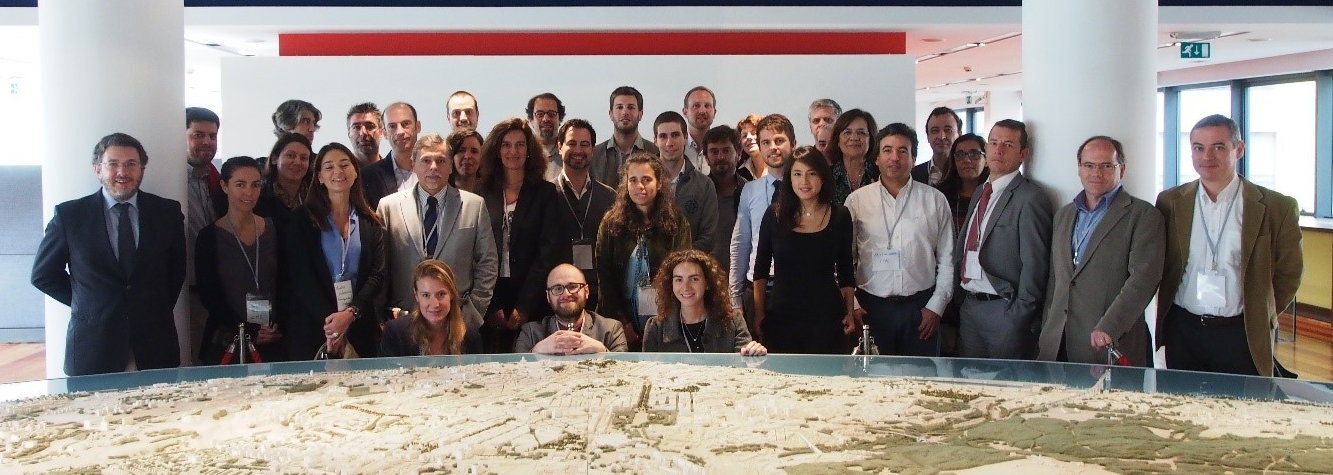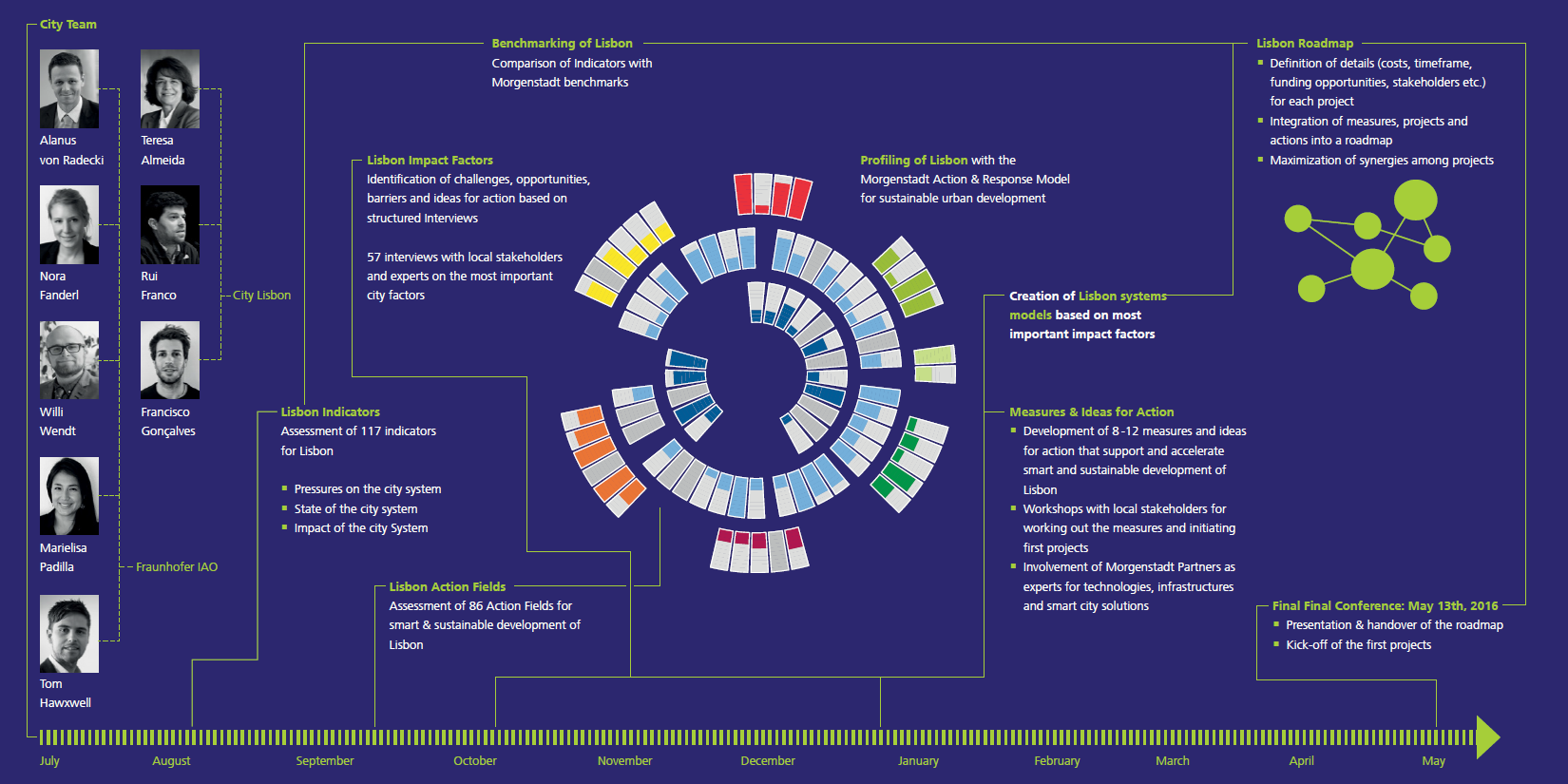
City Lab Lisbon

"The City of the Light"
A European capital with approximately 550.000 inhabitants, Lisbon plays a crucial role not only in Portugal, but also in Europe due to its role as a gateway to the markets in the southern hemisphere. Significantly affected by the economic crisis and by demographic changes in previous decades, the city of Lisbon also faces various challenges closer to home. In this context, Lisbon defined the built environment in the historic center, the mobility system, the generation of clean energies and the use of information & communication technologies as key areas of activity for the upcoming years. In order to address the manifold challenges Lisbon is facing today and to achieve more sustainable urban development.
Lisbon wins the Morgenstadt City Challenge
Lisbon applied for the City Lab Challenge in 2015 and the corresponding City Lab process, which aimed to identify the strengths and weaknesses of the city across several sectors, as well as key areas of intervention for smart and sustainable development. It was also intended to identify potential future opportunities, current barriers that need to be overcome and to demonstrate possible paths for a sustainable development of the city.
City Lab results
Lisbon presents the necessary preconditions to promote smarter urban development. However, the City Lab process highlighted a range of overarching issues that could not be addressed alone through interventions in specific sectors. Therefore, the key proposed solutions for Lisbon relate to overarching interventions that create a dialogue, encourage cooperation between key actors in different sectors, and set meta-level objectives. Part of this process is the reinforcement of the capacities of the municipal Sustainabilty Action Team to promote inter-sectoral cooperation, the establishment of a forum to create a dialogue between key actors in the city, and the integrated development of a clear set of goals to act as a “guiding star” for future city activities. These transversal interventions need to be complemented by specific projects “on the ground” in the different sectors.
The City Labs process has demonstrated that “smart“ urbanism is not just about high-tech solutions, but also means striving for a more holistic understanding, as well as appreciating the complexity of urban systems. Innovative forms of intelligent collaboration, together with a clear vision and strategy, constitute the basis and, at the same time, the precondition for becoming a smart city.
Further information for download
Morgenstadt City Lab Lisbon
For more information please read here the executive summary.

